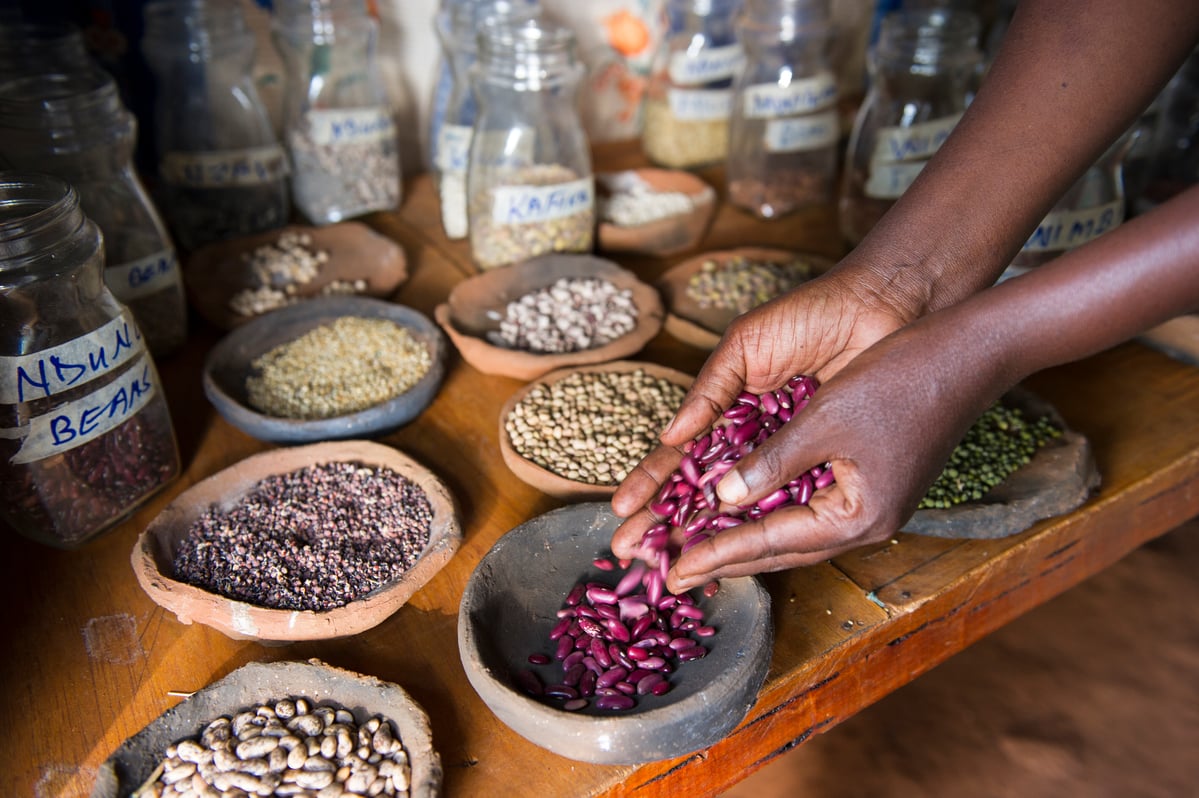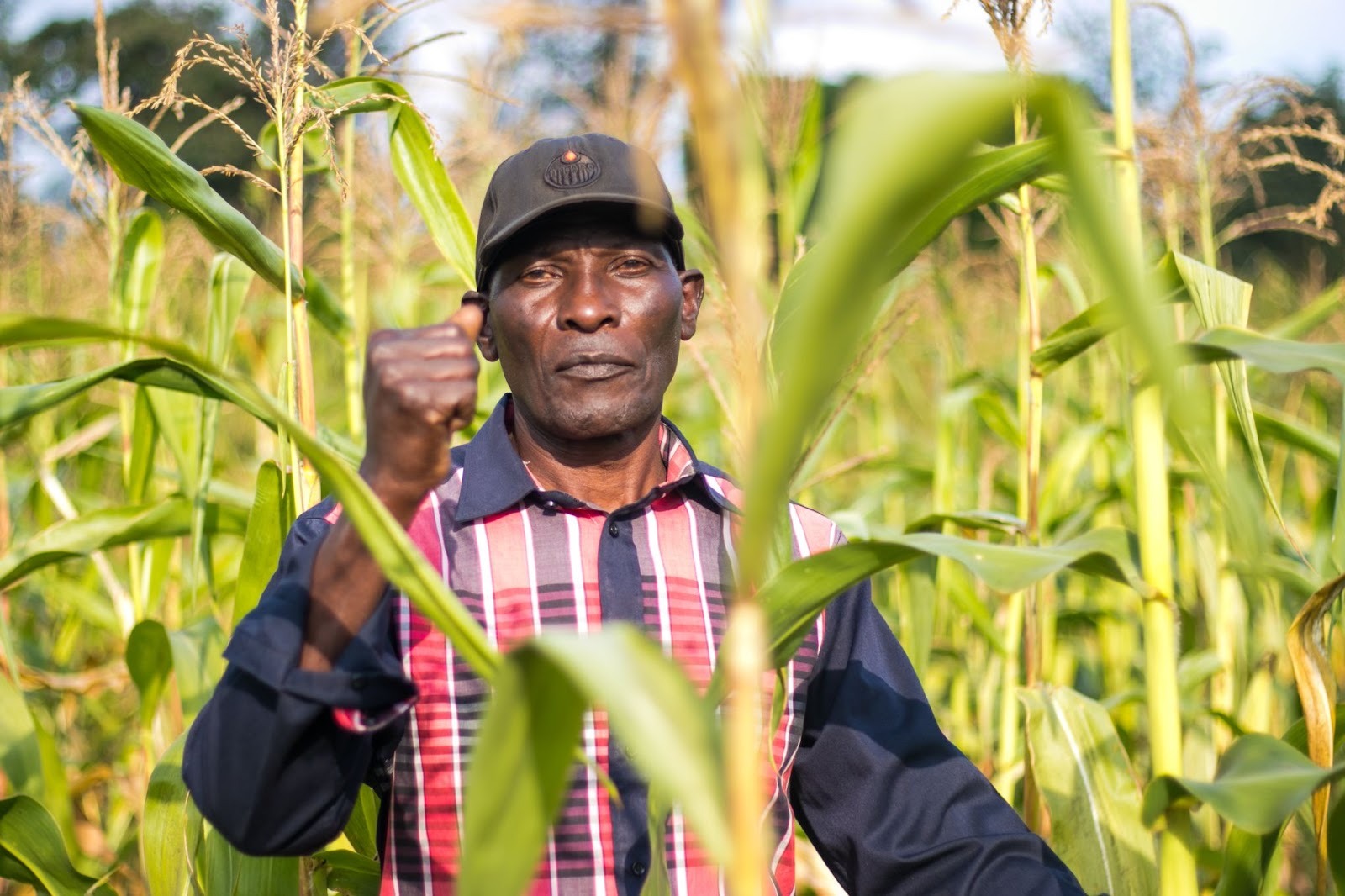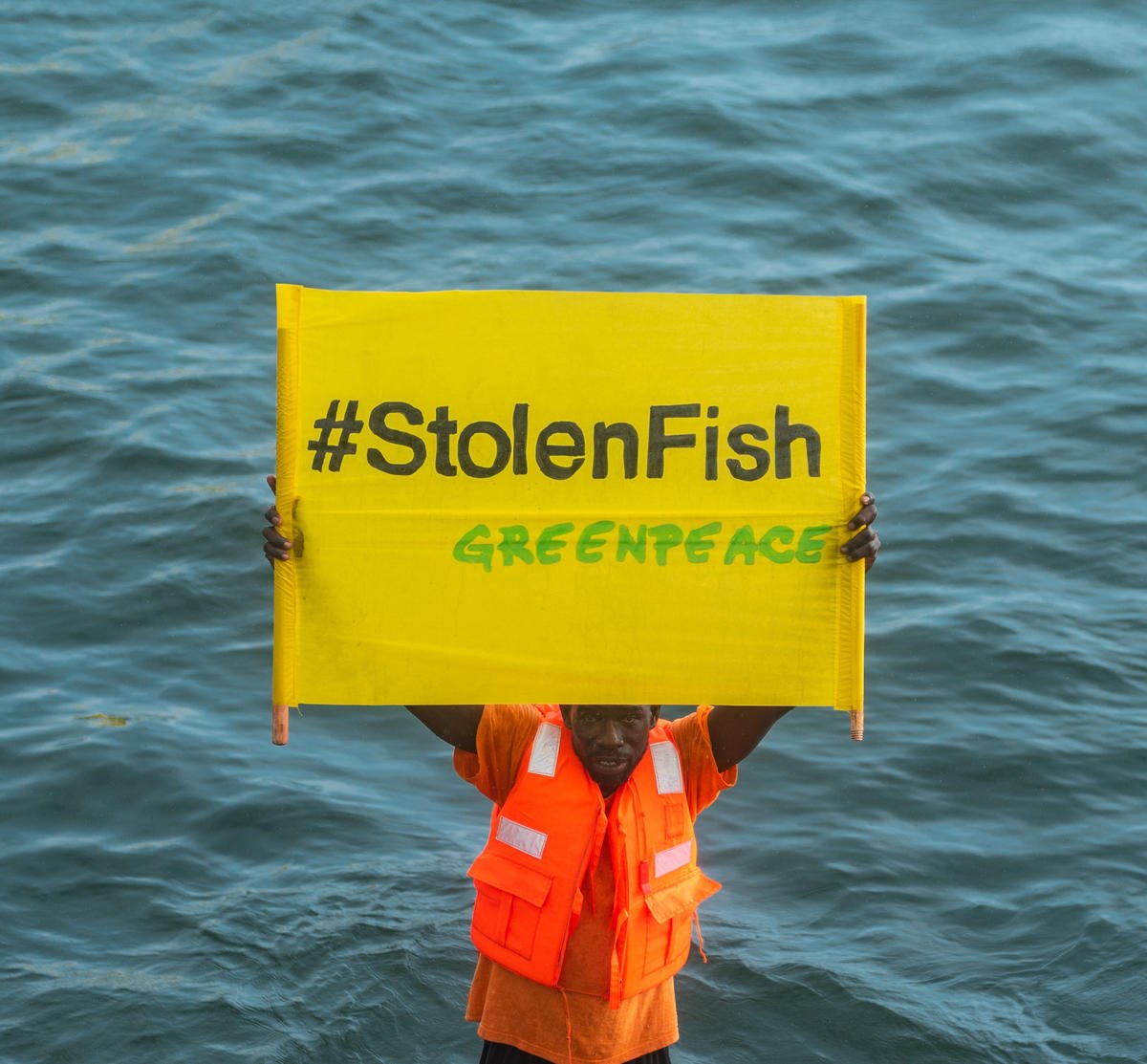Dakar, 30 June 2022 – The Food and Agriculture Organization of the United Nations has highlighted the devastating impact of the fishmeal and fish oil industry on West Africa’s fish stocks, on jobs in the region and on the availability of food. The report cited Senegal and other countries in West Africa as some of those “where fishmeal production is on the rise” and “the sustainability of some fisheries remains of great concern”. Its authors insisted that government action on the issue, including improvements to governance and fisheries management, was “essential”. [1]
Responding to these dramatic findings, Dr Aliou Ba, Greenpeace Africa’s Senior Oceans Campaigner, said:
“Fish that parents here could be feeding to their families is being taken by big business and fed to farmed fish and animals in rich countries. It’s appalling. The shareholders of the US, Europe and China are doing well from this crisis, but here we are facing catastrophic food insecurity. [2] One day there will be no more fish, no more jobs and no more food – and then big business will go steal someone else’s fish.
“West African countries must put their food sovereignty at the center of their policies and avoid these types of situations. Governments across this region claim they regulate the industry. But then they allow the trawlers to fish in waters where they shouldn’t be, and they allow the fishmeal factories to use fish that could be eaten by people here. Food price rises can’t only be blamed on the war on Ukraine: the global food system has always been rigged against poorer countries.
“But we are fighting back. Earlier this month fishing communities and civil society groups across West Africa united in mass protest to demand change from big business, the wealthy countries who back them and the authorities here who let them break the law. [3] And at the UN Oceans Conference in Lisbon right now we are demanding action. We won’t stop saying it: don’t steal our fish.”
Notes
[1] The FAO report says: “While the majority of whole fish used in the production of fishmeal and fish oil originates from well-managed resources, the sustainability of some fisheries remains of great concern in some countries where fishmeal production is on the rise. This is the case in some countries in West Africa, where an increasing amount of catches are reduced into fishmeal for export purposes, rather than used for human consumption. In Senegal, for instance, whole fish used for decades for direct human consumption are now being redirected into production of marine ingredients. This not only increases the pressure on fishery resources, but it impacts food security and livelihoods. In these areas, it is essential to improve governance and fisheries management, while prioritizing the utilization of fish for human consumption”. (FAO, 29 June 2022, p. 77)
[2] The most recent Global Network Against Food Crises report, written before the impact of Russia’s invasion of Ukraine on food insecurity could be added to forecasts, predicted that in June to August 2022, 3.9m (22%) people in Senegal would experience ‘stressed’ levels of food insecurity (indicating minimally adequate food consumption, according to the IPC classification of food insecurity) while 0.9m (5%) people would experience ‘crisis’ levels (indicating moderately inadequate food consumption). In Mauritania, 1.4m people (33%) would experience stressed food insecurity and 0.9m people (20%) would be in crisis. In the Gambia, 0.6m people (25%) would experience stressed food insecurity and 0.2m people (8%) would be in crisis.
[3] On World Oceans Day, 8 June 2022, Greenpeace Africa, fishing communities and civil society groups across West Africa united in a show of strength against the fishmeal and fish oil industry and the politicians that have enabled it. They demanded action on the industry “to prevent a human catastrophe”.



